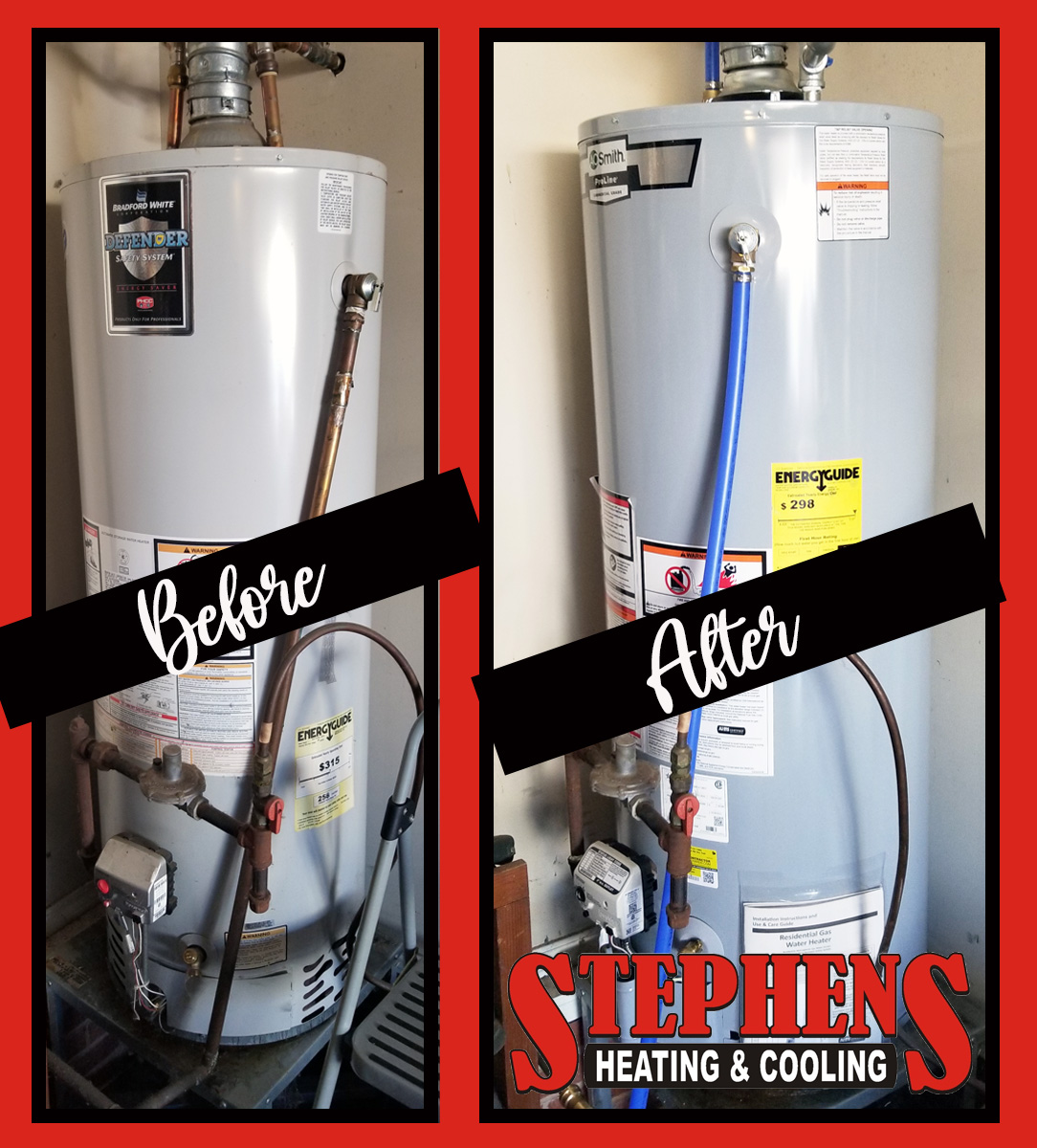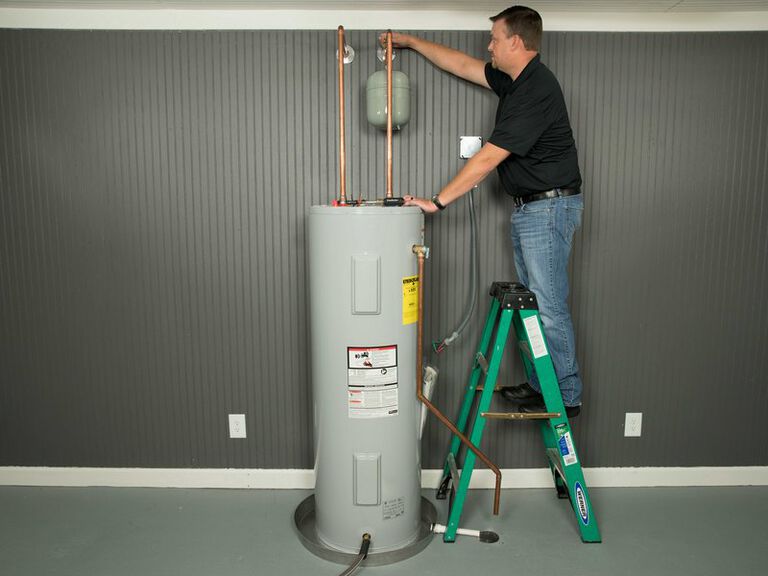How to Choose the Right Hot Water Heater Setup for Your Home
Picking the proper water heater installment for your home needs a detailed understanding of numerous factors, including your home's certain warm water demands and the kinds of heaters offered. Furthermore, factors to consider around energy performance and installation costs play an important function in the decision-making procedure.

Examine Your Warm Water Needs
Evaluating your warm water needs is essential for picking an appropriate water heating system that effectively meets your house demands. To begin, take into consideration the number of occupants in your house and their everyday regimens, as these elements significantly affect warm water intake. For example, larger households generally need higher warm water capacity for activities such as showers, laundry, and dishwashing.
Recognize when your household requires the most hot water simultaneously. In addition, think about the details devices and fixtures that eat warm water, including cleaning faucets, dishwashers, and makers.
It is also necessary to account for any future modifications in your family, such as added household members or changes in way of living that might boost hot water demand. Examine the power performance of potential water heater choices, as this can substantially influence long-lasting operating costs. By extensively evaluating these aspects, you can make an educated decision that aligns with your warm water needs and promotes reliable energy usage in your home.
Check Out Different Hot Water Heater Types
When exploring various water heating system types, it's necessary to comprehend the various choices readily available and their one-of-a-kind functions. One of the most typical kinds include tank hot water heater, tankless water heating systems, heatpump water heaters, and solar water heating systems.
Container hot water heater are conventional systems that save a details quantity of warm water, making them ideal for families with regular demand. They can run out of warm water during height usage.
Tankless water heating units, on the various other hand, heat water on demand, offering an unlimited supply. They are suitable for smaller sized spaces and can be a lot more energy-efficient, yet may call for a greater ahead of time financial investment.
Heatpump hot water heater utilize electrical power to transfer warm from the air or ground, making them efficient alternatives in modest environments. They can be more complex to install and may need extra area.
Finally, solar water heating units harness sunshine to warmth water, using a green choice. They require a considerable initial financial investment and are dependent on sunny conditions but can significantly minimize energy prices with time.
Each type has distinctive benefits and factors to consider, making it essential to examine which finest fits your household's needs and choices.
Think About Power Effectiveness Scores
Recognizing the different kinds of hot water heater normally leads to the factor to consider of their energy effectiveness scores. Power performance is an essential variable in picking a hot water heater, as it directly influences your utility expenses and the environmental footprint of your family. Hot water heater are typically rated utilizing the Energy Factor (EF) or the newer Attire Power Aspect (UEF) metrics, which evaluate their effectiveness by measuring the energy eaten versus the warm water created.

It is likewise important to examine the Energy Celebrity qualification, which symbolizes that a water heating unit fulfills stringent performance requirements. Selecting a hot water heater with a high power effectiveness rating can not just reduce your power costs yet likewise improve the overall convenience of your home, making it a vital aspect of the decision-making procedure.
Evaluate Installation Prices
Evaluating installment costs is a critical step in the choice process for a water heating unit, as it encompasses not only the price of the device itself but likewise the expenses connected with its setup. It is necessary to acquire detailed quotes from numerous professionals to guarantee a detailed understanding of potential costs. This consists of labor charges, any kind of required authorizations, and products required for the setup.
When analyzing installation costs, consider the complexity of try here the setup procedure. Aspects such as the area of the water heating system, existing plumbing framework, and whether the installment entails replacing an old unit or installing a brand-new system can dramatically influence overall costs. As an example, retrofitting an existing room might incur added costs compared to a straightforward installation.
In addition, be mindful of the long-term implications of installation expenses. Some hot water heater may have higher ahead of time setup costs but provide higher energy effectiveness, resulting in cost savings on power costs gradually. Eventually, a complete examination of setup prices, combined with an understanding of the unit's lasting efficiency, will certainly lead you in making an informed choice that straightens with your budget plan and needs.
Testimonial Maintenance Requirements
Regular upkeep is crucial for ensuring the durability and efficiency of a hot water heater. This process typically includes periodic inspections, cleansing, and needed you could try this out modifications to maintain the system in ideal working problem. House owners ought to set up annual specialist maintenance, that includes inspecting the anode rod, purging the storage tank to remove debris buildup, and evaluating the pressure safety valve.
For tankless water heaters, upkeep focuses on descaling the system to stop mineral buildup, specifically in areas with difficult water. Additionally, it is necessary to examine and clean filters regularly to preserve correct water flow.
House owners should likewise execute regular visual assessments, trying to find indicators of leaks, deterioration, or uncommon noises, which may show underlying problems. water heater. On a regular basis testing the temperature level and stress safety valve is additionally crucial, as a malfunctioning valve can cause hazardous stress build-up
Finally, complying with the maker's particular upkeep guidelines is crucial. These standards commonly include suggested upkeep intervals and particular tasks to guarantee the system runs successfully and safely. By adhering to correct upkeep methods, house owners can prolong their water heater's life expectancy and improve its effectiveness, ultimately saving on energy costs and minimizing the likelihood of costly repairs.
Conclusion
Selecting the proper water heating system setup requires a comprehensive evaluation of household warm water requirements, the evaluation of different sorts of hot water heater, and consideration of energy efficiency rankings. Additionally, an analysis of setup expenses and maintenance responsibilities is necessary for making sure ideal efficiency and long life. By sticking to these standards, house owners can make informed choices that not only accommodate immediate requirements but additionally advertise long-lasting power effectiveness and cost-effectiveness in water home heating services.
Choosing the suitable water heating system installment for your home requires a thorough understanding of different factors, including your family's details hot water needs and the types of heating units readily available.Examining your hot water needs is critical for picking a suitable water heating system that efficiently fulfills your house demands. Water heating systems are generally ranked utilizing the Power Factor (EF) or the more recent Attire Power Factor (UEF) metrics, which measure their performance by gauging the power consumed versus the hot water created.
Some water heating units might have higher in advance installation expenses but offer better energy effectiveness, leading to savings on energy costs over time. water heater installation.Selecting the proper water heating system installation necessitates a detailed examination of household warm water demands, the exam of various types of water heating units, and consideration of energy effectiveness rankings